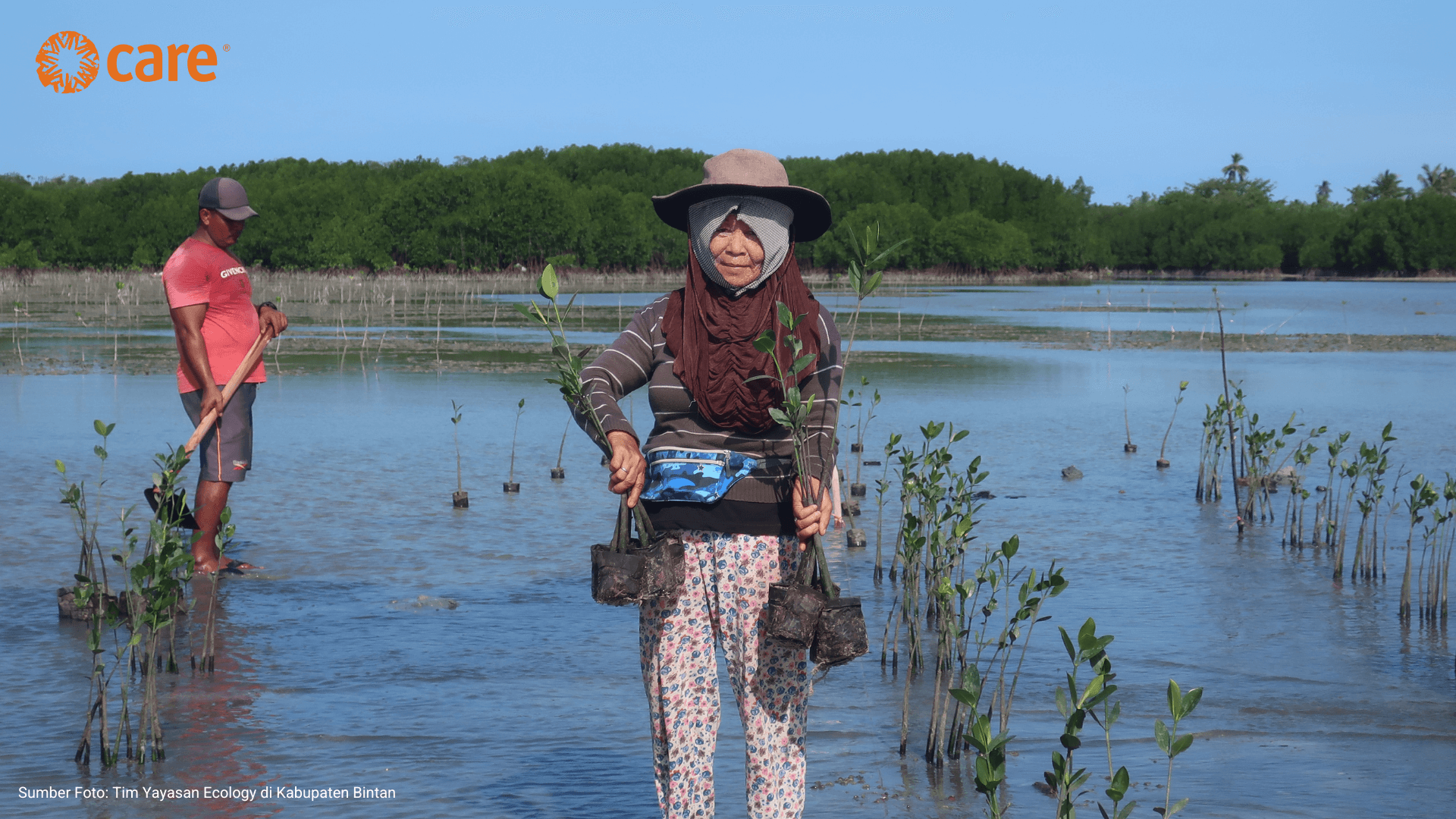According to a report from Kompas.id, women’s groups are among the most affected by climate change and environmental damage. Despite this, women rarely have a seat at decision-making forums, including those aimed at environmental conservation. Household organic waste management in Indonesia is an important area that must be carefully addressed for environmental protection. According to data from the National Waste Management Information System (SIPSN), in 2023, the total waste generated in Indonesia amounted to approximately 40 million tons per year.
Data from the Depok City Environmental and Cleanliness Agency (DLHK) reveals that in 2023, around 900 to 1,000 tons of waste were disposed of at the Cipayung landfill in Depok daily. Additionally, referring to data from SIPNS, Musi Banyuasin Regency produced around 103,000 tons of waste in 2024, with approximately 43,000 tons being managed.
Agus Tri Wahyono, Program Manager of the CARE Peduli Foundation (YCP), believes that women can play a crucial role in household organic waste management involvement. According to him, empowering women’s groups, such as those already supported by YCP in Depok City and Musi Banyuasin Regency, has had a positive impact. “By providing mentoring and training in managing household organic waste through Black Soldier Fly (BSF) maggot farming, women’s groups in Musi Banyuasin and Depok are becoming more empowered. Moreover, women’s involvement in household organic waste management can provide additional income for families,” said Agus.
Further explaining, Agus emphasized that the household organic waste management training in Depok City focuses on strengthening the involvement of women-majority groups at the neighborhood (RT) and community (RW) levels. “The training on organic waste management using maggots was carried out over ten sessions. Each session involved two parts: financial literacy training for both women and men in households, general gender awareness, and an introduction to maggot farming and its benefits,” he added.
Agus also highlighted that active participation from the groups was emphasized in managing household organic waste and improving household financial literacy with a gender-responsive approach. This is seen in the potential economic benefits from maggot farming. “From December 2024 to January 2025, YCP participants managed a total of 29,772 kg of household organic waste. On average, each participant processed one to two kilograms of waste to feed the maggots. Through this farming, the total money collected by all participants amounted to Rp6,025,000 from the sale of maggots,” he explained.
Arniah Purwanti, one of the training participants from Tapos District, Depok City, shared that she became interested in maggot management training because it could bring economic profit. She previously struggled to sell the maggots she cultivated. “I saw on social media that maggots could be sold. But it was really hard to find a market. Now, with this waste management program by YCP, I know where to sell the maggots I raise. So, it’s easier now,” said Arniah.
Nursinaini, a member of the Women’s Economic Empowerment Group (KUEP) of Perempuan Mandiri in Sido Mulyo Village, Musi Banyuasin, stated that her group is actively involved in managing household organic waste using maggots. “We manage household organic waste from six families. The waste we process includes food scraps, fruit, and vegetables,” she explained.
According to Nursinaini, KUEP Perempuan Mandiri is also active in educating the surrounding community. “The local community is also taught to get used to separating organic and inorganic waste. The household waste we collect is processed for BSF maggot farming. Some of the maggots are also used as feed for KUB chickens managed by KUEP members,” she concluded.
Author: Kukuh A. Tohari
Editor: Swiny Adestika





